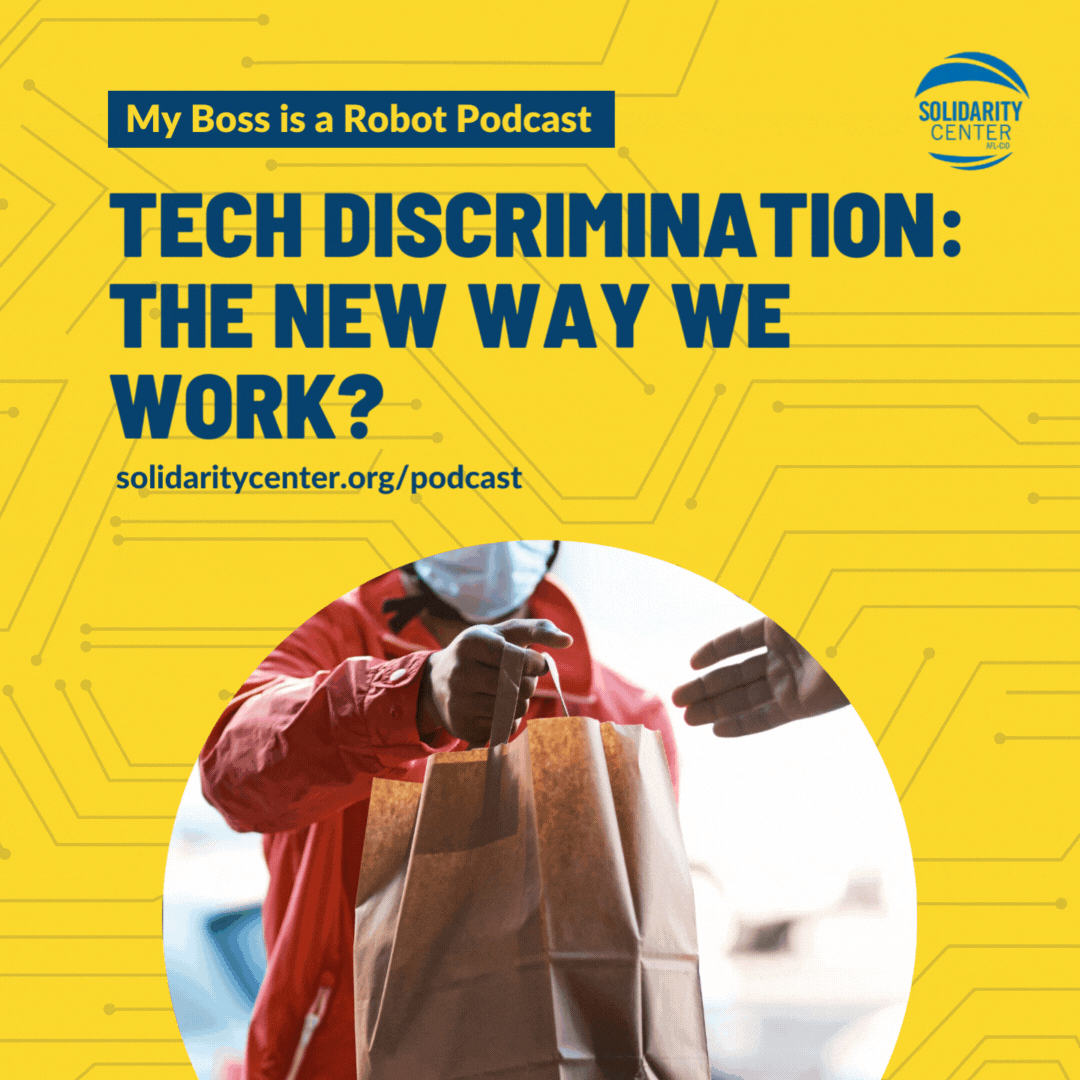In the Philippines, 200 Grab Food Delivery Riders, through the National Union of Food Delivery Riders (RIDERS-SENTRO), waged a one-day strike October 25 to protest a fare decrease scheduled to start that day. Grab’s new rate will reduce the base fare from 45 pesos to...

The Solidarity Center assists workers in the informal economy, such as market vendors in Zimbabwe, come together to assert their rights and raise living standards. Credit: ZCIEA
Some 2 billion people work in the informal sector as domestic workers, taxi drivers, and street vendors, many of them women workers. Informal economy work now comprises the majority of jobs in many countries and is increasing worldwide. Although informal economy workers can create up to half of a country’s gross national product, most have no access to health care, sick leave or support when they lose their jobs, and they have little power to advocate for living wages and safe and secure work.
The Solidarity Center is part of a broad-based movement in dozens of countries to help workers in the informal economy come together to assert their rights and raise living standards. For instance, three affiliates of the Central Organization of Trade Unions-Kenya (COTU-K), a Solidarity Center partner, signed agreements with informal worker associations to unionize the workers, enabling them to access to the country’s legal protections for formal-sector employees.
Find out more about informal workers gaining power by joining together in unions and worker associations in this Solidarity Center-supported publication, Informal Workers and Collective Action: A Global Perspective.
Philippines Union Leaders Share Strategies to Reach Delivery Drivers
Despite unfair working conditions, many gig workers need to be convinced to join together in unions or associations to more effectively advocate for basic benefits granted to employees in traditional jobs. On the latest episode of the Solidarity Center Podcast series...
Tech Discrimination: The New Way We Work?
Ride share drivers face many job-based hazards–and for women, the dangers are compounded by sexual harassment and other forms of gender-based violence. Women app-based workers also are disproportionately targeted by what law scholar Veena Dubal has termed "algorithmic...
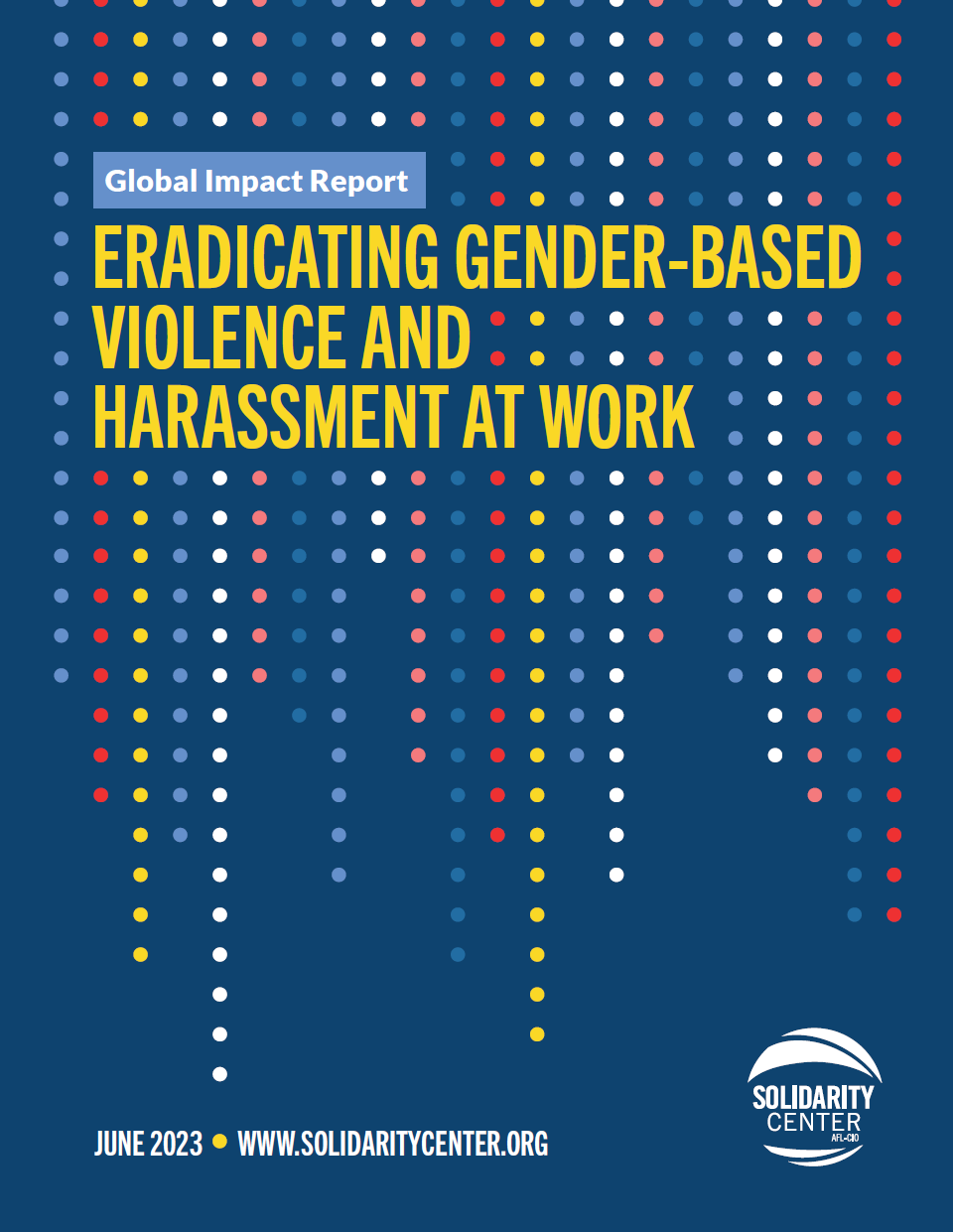
Global Impact report: Eradicating Gender-Based Violence and Harassment at Work
The Solidarity Center Global Impact report highlights the Solidarity Center's support of unions and civil society organizations in ending gender-based violence (GBVH) at work and showcases key outcomes, including a landmark agreement to address GBVH in Lesotho garment...
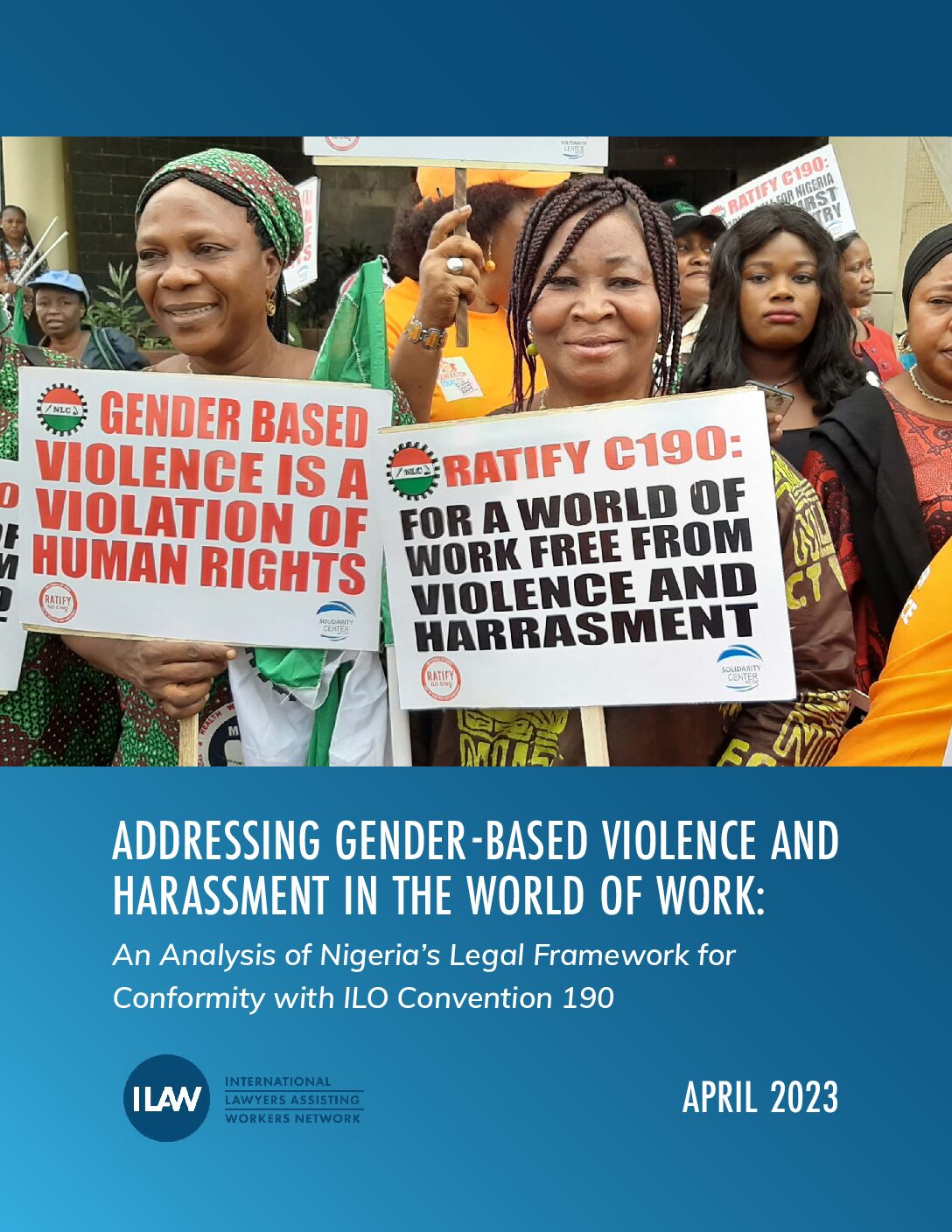
ADDRESSING GENDER-BASED VIOLENCE AND HARASSMENT IN THE WORLD OF WORK: An Analysis of Nigeria’s Legal Framework for Conformity with ILO Convention 190
The report outlines the current legal framework in Nigeria regarding violence and harassment at work; examines key provisions of C190 and how to amend laws to fully realize these protections; and identifies opportunities for legal practitioners to utilize existing...
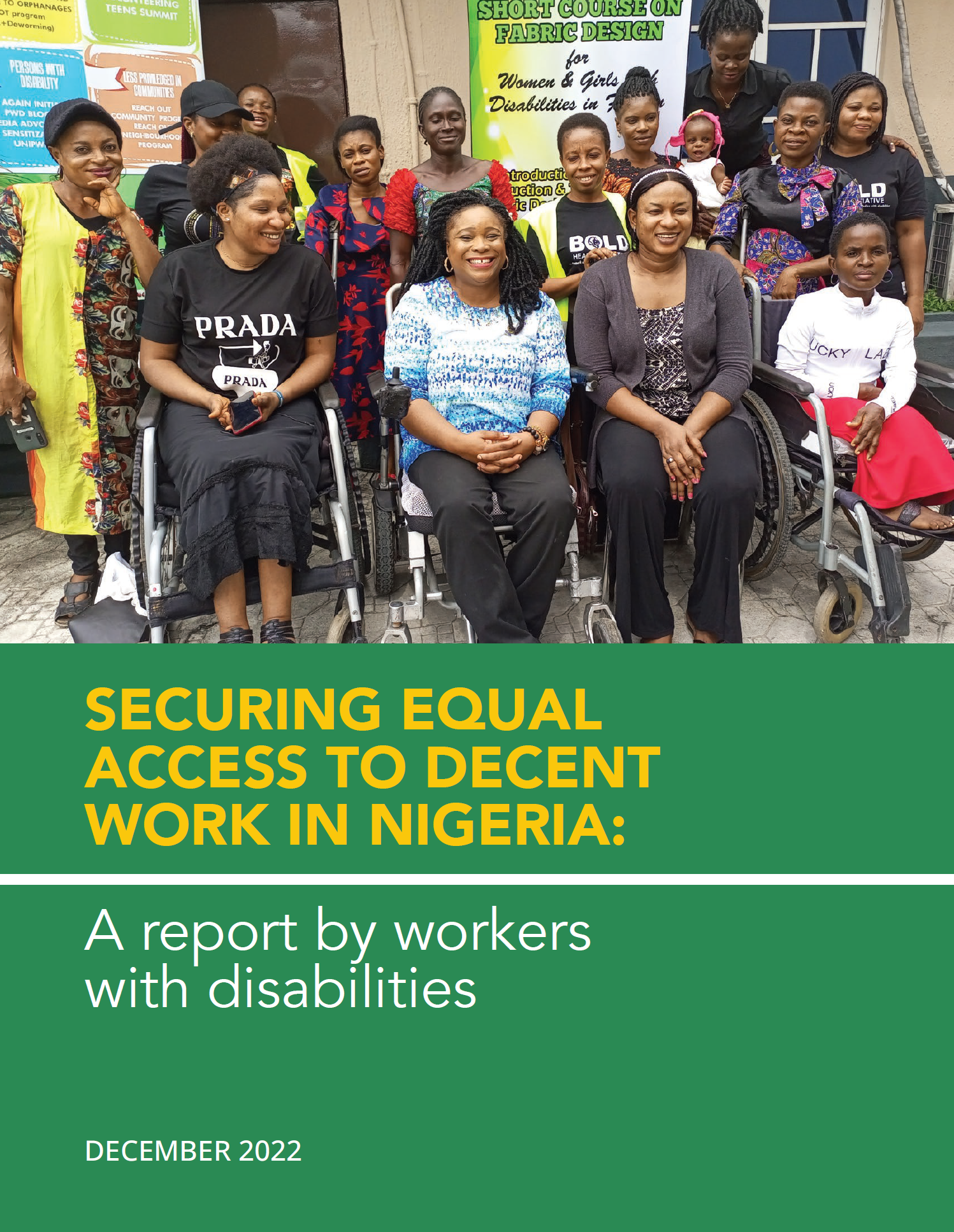
Securing Equal Access to Decent Work in Nigeria: A Report by Workers with Disabilities
A survey of more than 600 workers with disabilities in Nigeria conducted by the Trade Union Congress of Nigeria (TUC) Women Commission and the Solidarity Center in collaboration with Nigerian unions and disability rights organizations, finds that most workers...
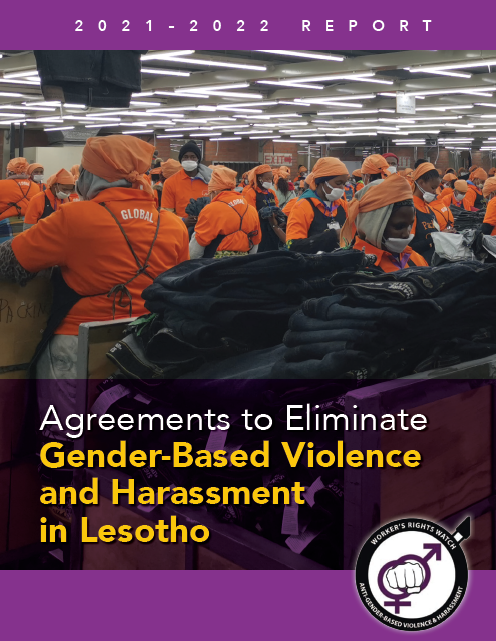
2021–2022 Agreements to Eliminate Gender-Based Violence and Harassment in Lesotho
A report by Workers’ Rights Watch tracks progress on a precedent-setting, worker-centered program in Lesotho garment factories to prevent gender-based violence and harassment (GBVH) of garment workers producing jeans for the global market. The Lesotho Agreements...
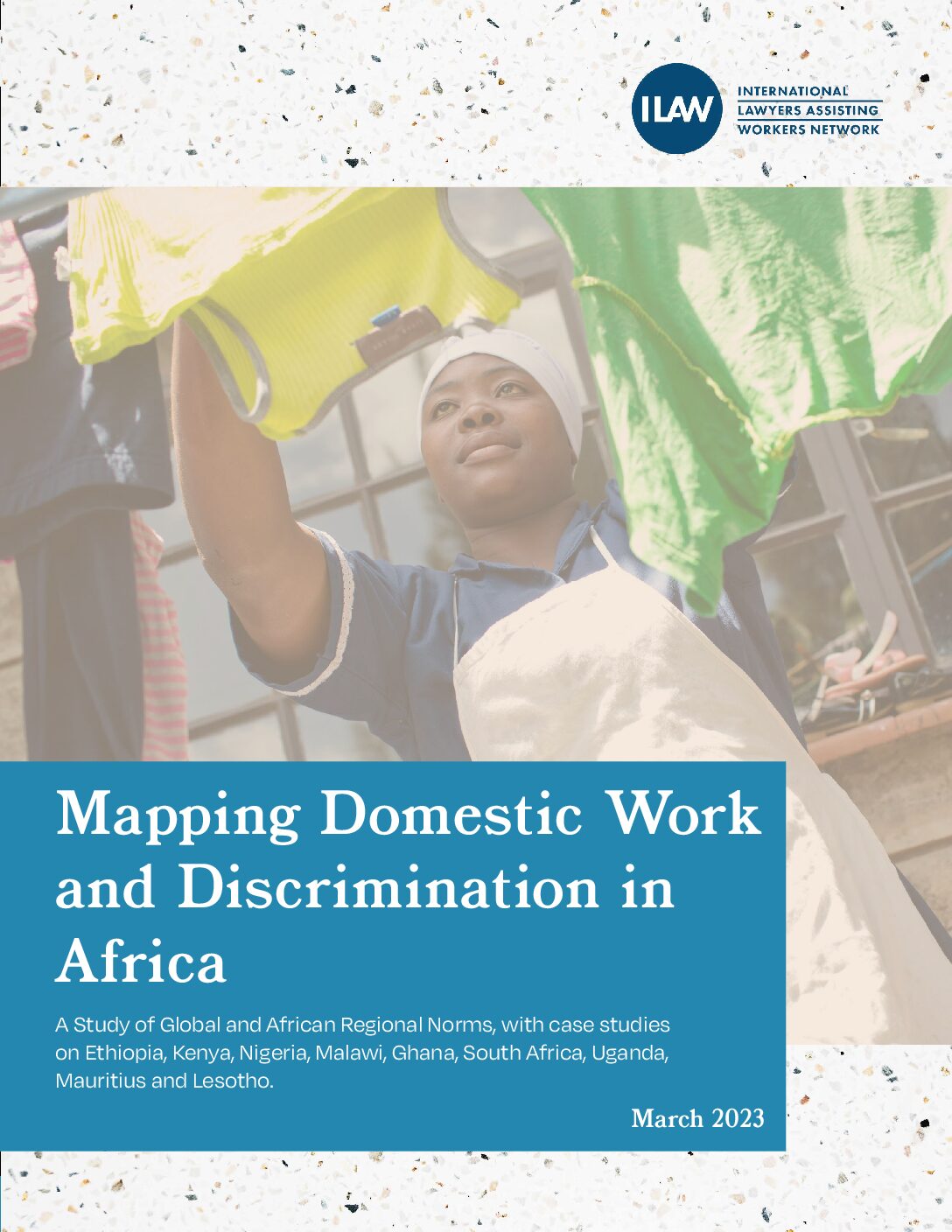
Mapping Domestic Work and Discrimination in Africa
This report looks at the domestic, regional and international legal frameworks regulating domestic work in nine countries: Ethiopia, Ghana, Kenya, Lesotho, Malawi, Mauritius, Nigeria, South Africa and Uganda. Download it here.

2022 Annual Report
In 2022, the Solidarity Center marked a quarter century of supporting embattled workers, advocating and litigating for change, and celebrating worker rights advances in troubled times. As crackdowns on fundamental civil rights intensify around the world, workers and...



